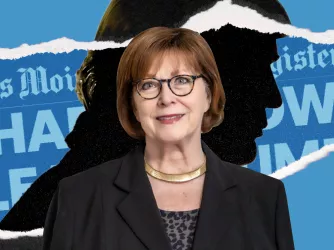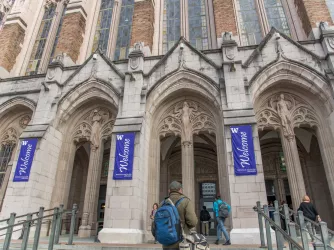Table of Contents
Victory for Freedom of the Press at University of Oregon
EUGENE, Ore., March 3, 2005—The Oregon Commentator, a conservative student magazine, has won a three-month-long battle for press freedom against the University of Oregon (UO) student government. The Commentator had been derecognized and denied funding after it published items satirizing a transgendered student senator. Acting in response to student complaints, the Foundation for Individual Rights in Education (FIRE) intervened, writing letters to the administration and to relevant campus leaders. On March 2, FIRE learned that the student government had reversed its unconstitutional actions and re-recognized the Commentator.
“We are pleased that the Commentator has finally been restored to its rights,” remarked David French, president of FIRE. “It is shameful, however, that the administration allowed this brazen and flatly unconstitutional viewpoint discrimination to persist for so many months,” he continued.
The Commentator’s trouble with UO’s student government, the Associated Students of the University of Oregon (ASUO), began in December 2004, after a transgendered student senator complained of being offended after being mocked in the magazine. ASUO’s Program Finance Committee (PFC) subsequently rejected the publication’s mission statement, which, according to Commentator staff, has remained unchanged for the past 21 years. The PFC revisited the issue on February 1, 2005, to clarify the reasons for its decision. During this discussion, several PFC members publicly denied the committee’s constitutional obligation to distribute student fees on a viewpoint-neutral basis. When Commentator staff members explained that the PFC was legally obligated to uphold free speech under the First Amendment, one PFC member argued that he felt justified in disobeying an “unjust law,” meaning the First Amendment’s requirement of viewpoint neutrality in student fee funding. At the end of the meeting, a second PFC decision left the Commentator, again, derecognized and ineligible for funding.
The Commentator immediately contacted FIRE for assistance. On February 11, FIRE wrote UO President Dave Frohnmayer to protest the student government’s actions. FIRE explained to President Frohnmayer that “[a]s a state institution, the university and its administrators should understand that it has a non-delegable duty to ensure that the First Amendment rights of its students are protected.” (Emphasis in original.)
In a February 15 response to FIRE, President Frohnmayer stated that it would be “unwise and premature” for him to intervene in the funding process and remarked that he had “confidence [that] the final decision regarding funding of the Oregon Commentator will be viewpoint neutral.” In other words, Frohnmayer appeared to recognize the illegality of the PFC’s action but was unwilling to take any action to correct it.
“President Frohnmayer’s refusal to correct the PFC was irresponsible,” commented Greg Lukianoff, FIRE’s director of legal and public advocacy. “The students needed guidance on the law from the administration, and from President Frohnmayer’s response it looks as though the students were never provided with the guidance they needed—until FIRE decided to write the students directly.”
In light of the UO administration’s refusal to act, FIRE wrote a February 21 open letter to the ASUO and to the student media explaining that the Commentator’s expression was fully protected satire, and that “denial of constitutional rights, even for a day, constitutes ‘irreparable harm’ and can open an institution to liability for denying these rights.” (Emphasis in original.) The letter also requested that ASUO immediately recognize the Commentator and restore fundamental rights to all UO students.
On March 1, 2005, the PFC met again and this time approved the mission statement of the magazine, clearing the way for the magazine to be funded on a viewpoint-neutral basis. The Commentator’s budget was even increased by 5.63 percent, according to the Oregon Daily Emerald, the daily student paper at UO.
“We certainly hope that the ASUO—and the UO administration—has learned its lesson and that, from now on, student fees will not be used as a tool to favor or disfavor particular viewpoints. FIRE will continue to monitor the situation at UO to ensure that this attempt at censorship does not happen again,” concluded FIRE’s French.
FIRE is a nonprofit educational foundation that unites civil rights and civil liberties leaders, scholars, journalists, and public intellectuals from across the political and ideological spectrum on behalf of individual rights, due process, freedom of expression, academic freedom, and rights of conscience at our nation’s colleges and universities. FIRE’s efforts to preserve liberty at UO and on campuses across America can be viewed at thefire.org.
CONTACT:
Greg Lukianoff, Director of Legal and Public Advocacy, FIRE: 215-717-3473; greg@thefire.org
David French, President, FIRE: 215-717-3473; david.french@thefire.org
Dave Frohnmayer, President, University of Oregon: 541-346-3036; pres@oregon.uoregon.edu
Recent Articles
FIRE’s award-winning Newsdesk covers the free speech news you need to stay informed.

FIRE’s defense of pollster J. Ann Selzer against Donald Trump’s lawsuit is First Amendment 101

University of Washington alumni seek to revive the spirit of free inquiry

Meta’s content moderation changes closely align with FIRE recommendations
